Description
Product Overview
Upgrade your electric vehicle charging experience with the VistaCharge EV Charging Cable. This versatile cable works for both single (7.4kW) and three-phase (22kW), 32A charging, making it perfect for use at home or on the go. The Type 2 charging station socket plug and Type 2 EV charging port plug are compatible with most electric vehicles in Australia for hassle-free charging.
Tested in the Aussie climate
The VistaCharge EV Charging Cable is built to withstand the elements, with its IP55 weatherproof rating and operating temperature range of -30℃ to +65℃.
Multiple length options
Choose from 5m, 7m or 10m cable length options to suit your needs – whether you’re after something small and neat, or a longer cable that can reach past other parked vehicles.
32-amp EV cable
This 32-amp cable charges faster than a 16-amp option, and features a thicker core to minimise the risk of voltage drop.
High quality
Compliant with IEC 62196-1, IEC 62196-2, and EN 50620 standards, this cable delivers reliable and safe charging for your electric vehicle.
Carry case and portability
Packing your cable away into its premium carry case keeps it tidy and tangle-free. The case also helps to keep your vehicle clean when the cable has been on the ground or out in the rain.
Custom fleet logos and engraving
If you’re running an EV fleet, ask us about adding your logo or custom engraving to your Type 2 EV cables. Not only does custom branding look great – it could also stop your cables from going missing!
Find complete EV charging solutions in Australia
As well as EV cables (Type 2), Vista Power Technologies can assist with smart EV charging installation and energy monitor systems for home and business. If you’re thinking of installing a wall-based EV charger or a floor-based EV charger in Melbourne, Sydney, Brisbane, Perth, Adelaide or beyond, get in touch with the team today.
FAQs about Type 2 to Type 2 EV cables
When do I use a Type 2 to Type 2 EV cable?
Most public EV chargers in Australia will require you to bring your own EV connector leads. If chargers don’t already have a Type 2 cable tethered, most will have a Type 2 charging station socket plug that you can plug your cable into. A Type 2 to Type 2 cable can also be useful for home charging where the charger has a Type 2 socket.
Which EVs use Type 2 in Australia?
New model EVs imported into Australia after 2020 typically have EV charging cable Type 2 sockets. So for many modern EV owners, a high-quality Type 2 to Type 2 EV charging cable (22kW and 32-amp) is a great investment. Older EV models might have Type 1, so be sure to check your vehicle.
Can you use a Type 2 to Type 2 cable for DC charging?
Many EVs in Australia have a second socket immediately below the Type 2 socket that takes two large pins for DC charging. Together, these sockets are known as a CSS2 (Combined Charging System). You don’t need to worry about buying a CCS2 cable, as DC fast chargers tend to have these cables already tethered. So a Type 2 to Type 2 cable supports up to 22kW charging with AC, but does not support DC charging.

What’s a good length for an EV charging cable?
This depends somewhat on the EV and the way you use your vehicle. Too short, and you could be cursing every time you pull up to a charging point. Too long, and you’ll be lugging around a cable that’s heavy and bulky. Our tip: check where on your EV the charge port is located, and then consider the following cable lengths:
· A 5m charging cable is easy to store and has a lower price point. This is the minimum length we’d recommend for easy use.
· A 7m EV charging cable provides more flexibility at the charging point and can give you a choice in whether you want to reverse or drive into the parking bay.
· And the 10m Type 2 EV charging cable can be idealfor situations where you can’t park right next to the charging station, or if your EV is parked up behind another car.
Is 7.4kW or 22kW best for a Type 2 to Type 2 charging cable?
A cable of 22kW capability can support both single (7.4kW) and three-phase (22kW) charging, while a cable with 7.4kW capability will only support the slower single-phase charging. For this reason, it’s a no-brainer to choose the Type 2 cable 22kW. Just keep in mind that it’s usually the vehicle itself that limits charging speed, with many having a maximum AC rate of 11kW.
What is the difference between straight and coiled cable?
Which you choose comes down to personal preference, but we recommend a straight uncoiled cable. One key consideration is heat dissipation: a straighter cable allows heat to disperse as quickly as possible. Another is that our straight cables are really easy to manoeuvre and will still pack up easily into their premium carry case.
Product Reviews
| 5 star | 83% | |
| 4 star | 17% | |
| 3 star | 0% | |
| 2 star | 0% | |
| 1 star | 0% |

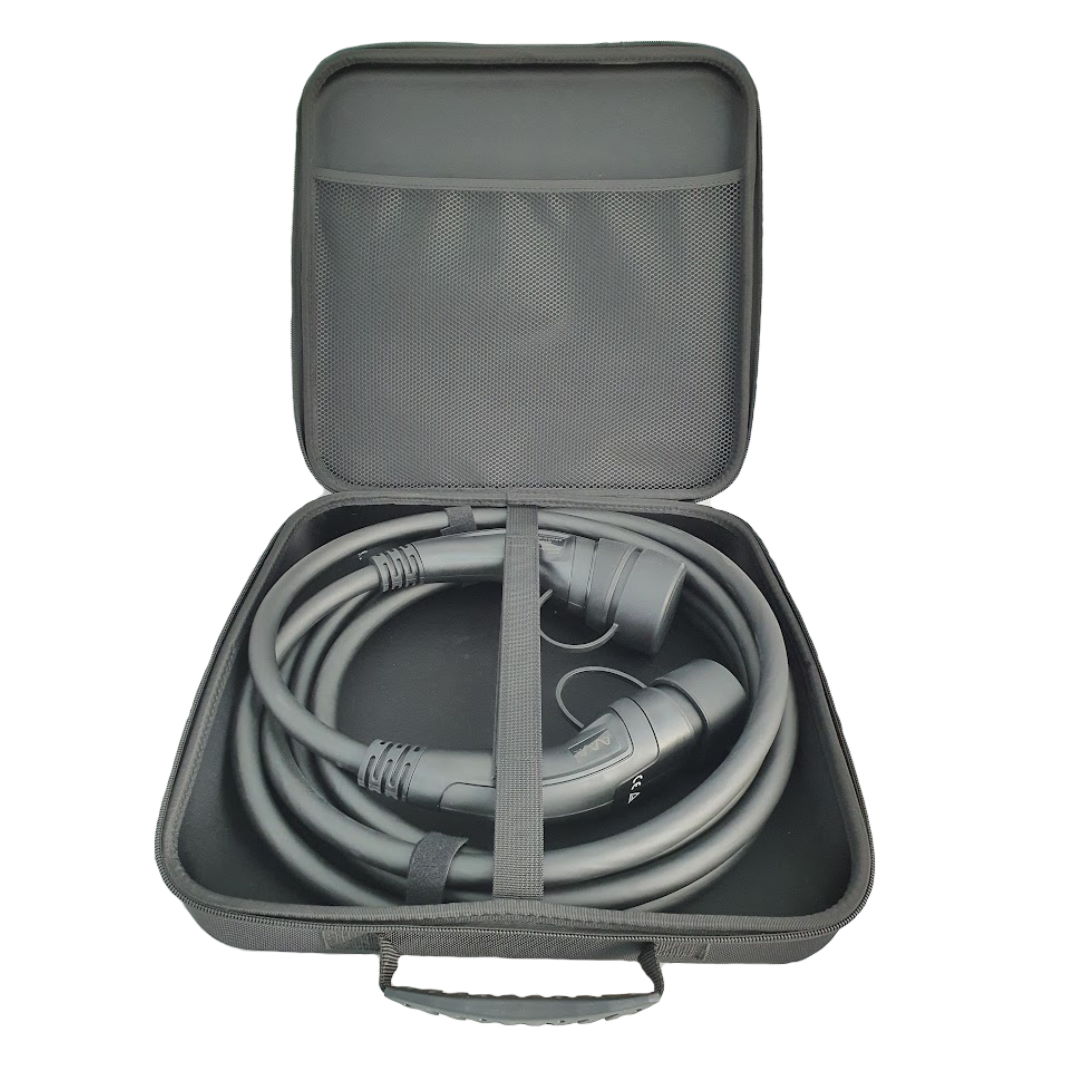
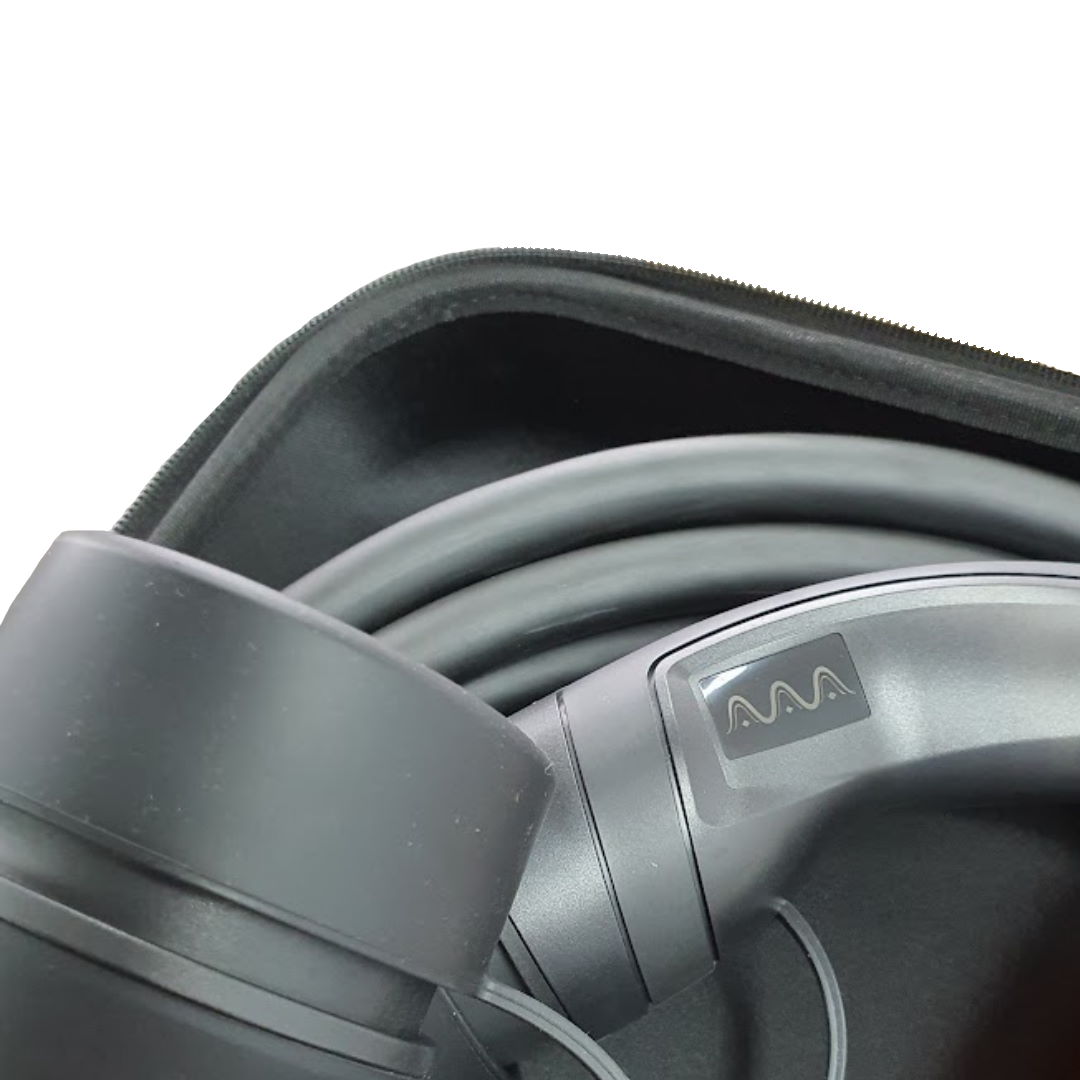
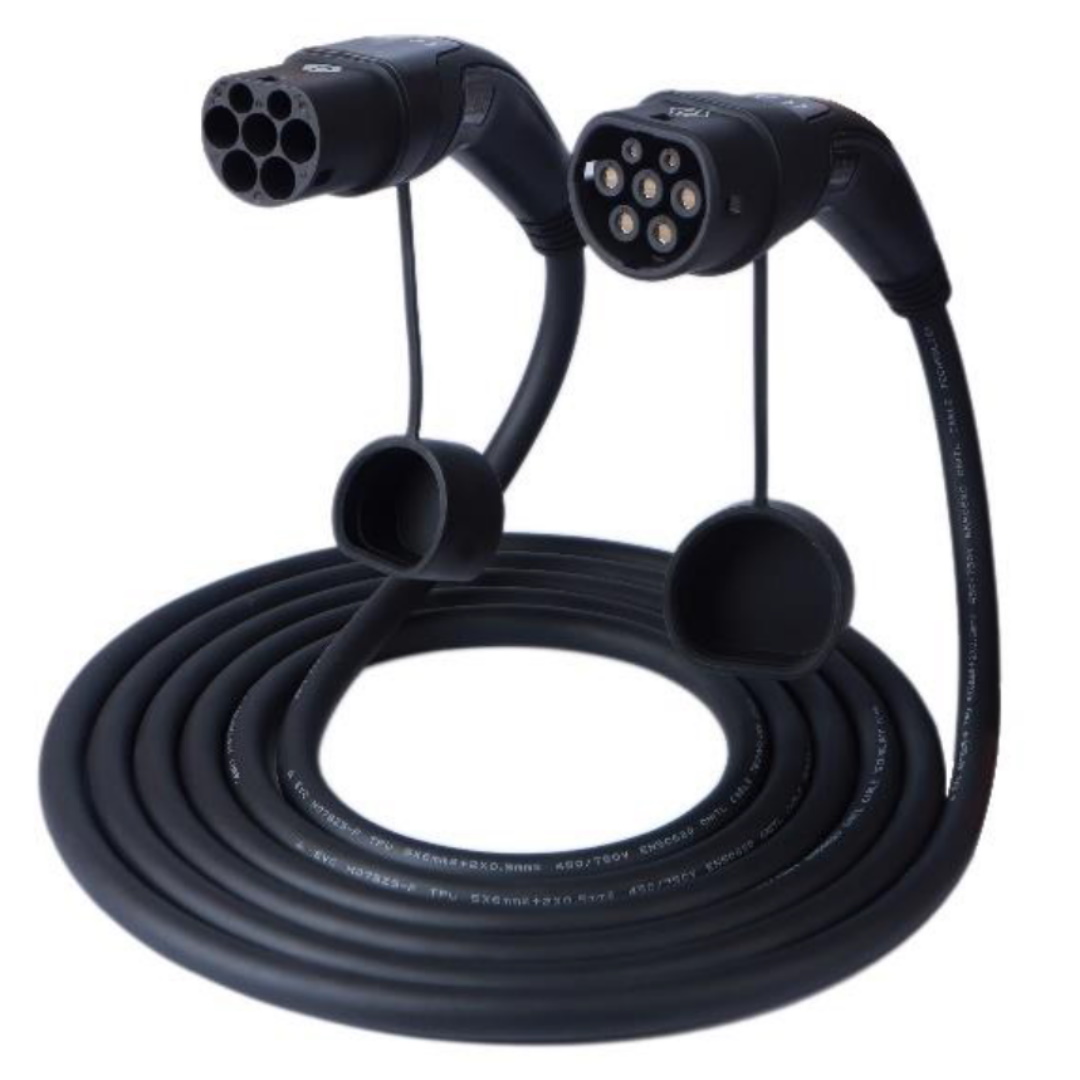
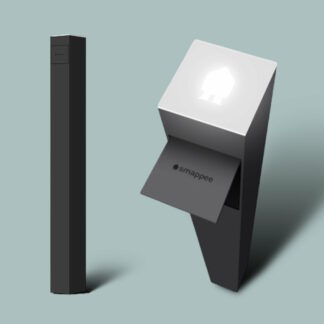
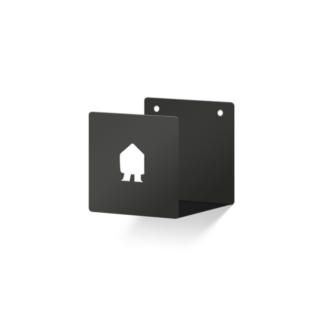
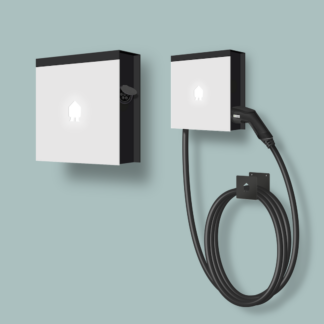
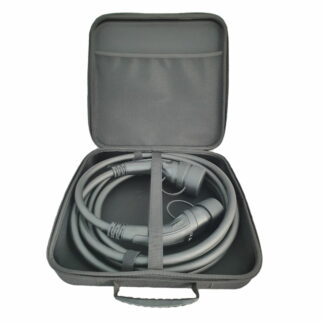

Good quick delivery and excellent quality product.
Seems good quality so far, does the job, quick delivery, all good.